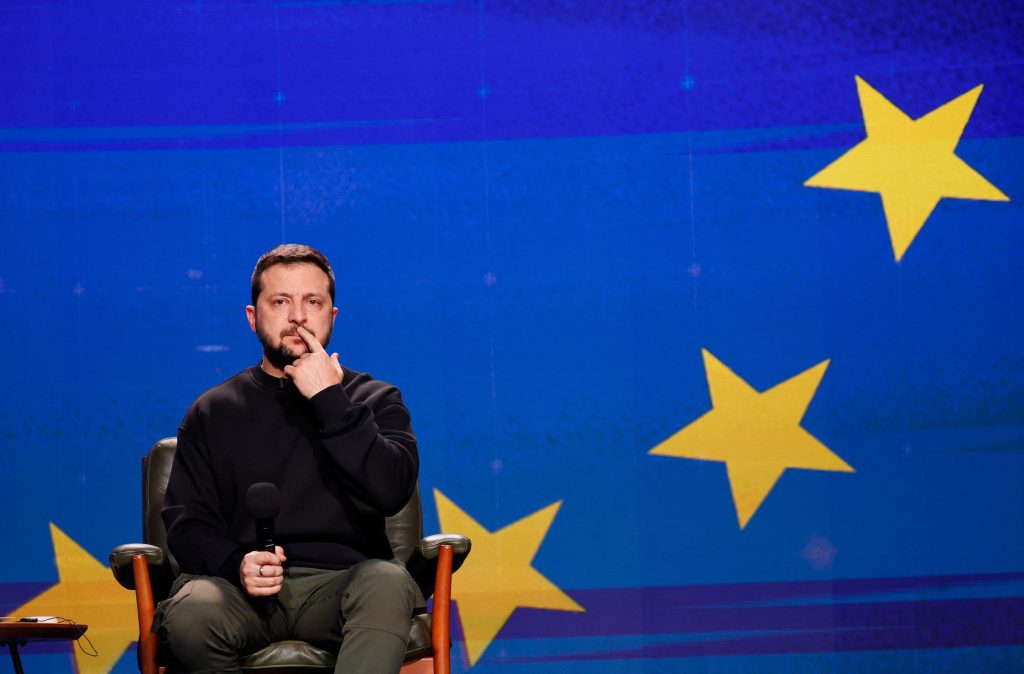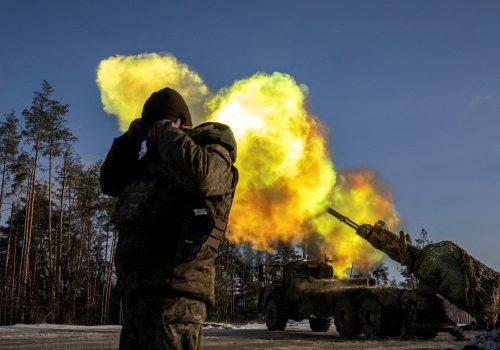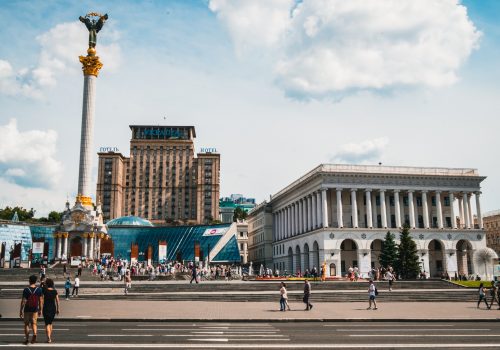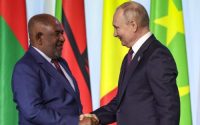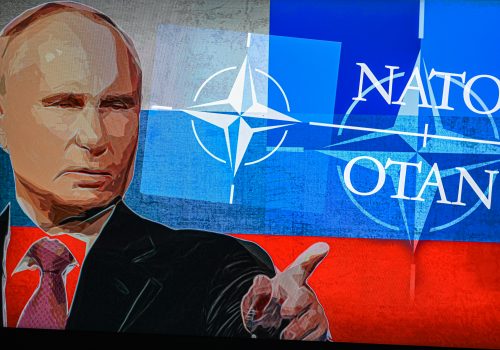
Ukraine’s EU accession process faces bureaucratic and political hurdles
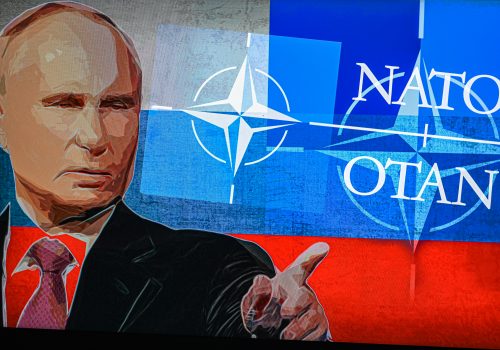
The European Council’s recent decision to open accession negotiations with Ukraine was a momentous moment both for Kyiv and the European Union. Now the serious work begins.
Ukraine’s EU story is a decade in the making. Ukraine’s European aspirations were a driving factor behind the 2013-14 Revolution of Dignity. Since Russia’s full-scale invasion began in February 2022, Ukraine’s EU integration has received a much-needed push, with both Ukrainian and EU leaders treating the country’s EU bid with fresh seriousness. The European Council’s green light for the opening of accession negotiations means Ukraine has now taken a major step closer to realizing its EU ambitions.
The coming negotiations to bring Ukraine into line with EU standards and regulations will be a technocratic and political feat. The European Commission, the EU’s executive, will be the contact throughout this process. The European Council, made up of the EU’s twenty-seven member states, must formally approve Ukraine’s progress.
Membership in the EU is not a foregone conclusion for Ukraine. On the contrary, Kyiv will now have its work cut out. Ukraine has already implemented a series of reforms including to its judiciary, minority rights, and anti-corruption legislation to meet European Commission conditions before the opening of membership talks, but that was just the beginning. Ukraine will now need to align with the EU’s vast body of rules and procedures, known as the acquis communautaire or acquis for short. These cover everything from economic and trade policies, public finances, rule of law, education, and tax policies to energy infrastructure and agriculture rules.
Stay updated
As the world watches the Russian invasion of Ukraine unfold, UkraineAlert delivers the best Atlantic Council expert insight and analysis on Ukraine twice a week directly to your inbox.
Following the recent Council Summit, and once Ukraine fulfills the final measures set out in the Commission’s recommendations, the European Commission will draft a framework for negotiations for approval by the Council. Negotiations are broken down into thirty-five distinct categories or “Chapters.” These chapters make up the EU’s acquis from judiciary and fundamental rights to the free movement of goods and intellectual property, energy and transport policy, and so on.
Once the Commission and Council are satisfied Ukraine has implemented the necessary reforms to close each chapter one by one, the Commission will generate a final recommendation for Ukraine to become a member. The Council and the European Parliament must then approve, with the final step coming when all existing member states sign and ratify a treaty welcoming Ukraine to the EU.
While tedious, these rules are critical to the EU’s basic functioning. The building blocks of the EU, such as the single market, require shared rules across all members to function and ensure a level playing field. The EU must be able to facilitate seamless cross-border trade and movement, for example. The same logic applies to rule of law and political stability, which impact the integrated economies and societies of other EU members.
If the process sounds long and burdensome, that’s because it is. Membership negotiations have usually taken around a decade for successful candidates in the past. Croatia, the last successful candidate to join the bloc, took ten years. Ukraine’s case is new territory. There has never been a candidate that is fighting a war for survival as it pursues these reforms, which brings up questions about how enlargement will work.
Eurasia Center events

There is also a political element that adds uncertainty to Ukraine’s accession process. All decisions by the European Council during this process require unanimity, thereby giving each member state a veto at any stage. Should any member feel dissatisfied for any reason, even for issues not related to a candidate country’s reform efforts, they may unilaterally block the process.
Politicking around enlargement has happened before. Greece and Bulgaria have both separately used vetoes on North Macedonia’s accession due to domestic politics and bilateral spats. Countries have also delayed enlargement before due to concerns over the EU’s internal functioning. For Ukraine, this was already on full display as leaders dreamed up a theatrical solution around Hungary’s veto of Ukraine’s accession negotiations. There are also concerns over the implications of Ukrainian membership for domestic priorities including Poland’s agricultural sector. The politics of enlargement have contributed to recent enlargement fatigue, which has specifically plagued candidates from the Western Balkans, who have been relegated to the EU’s waiting room for decades.
The earlier reluctance of EU members to embrace further enlargement also speaks to another potential wrinkle in Ukraine’s EU bid: Internal EU reform. EU member states are hotly debating the future functioning of the EU including, for example, the use of unanimity in critical decision-making. This reform process will directly impact Ukraine’s accession. With some members pushing for internal reform before taking on new members including Ukraine, Kyiv’s bid looks to be increasingly vulnerable to political factors not related to its own reforms.
Finally, without reforms, Ukraine’s size and level of development also risks capsizing the EU’s internal transfer system of agricultural and structural subsidies. This could transform member states that currently benefit from EU funds into net contributors to the budget of a union that includes Ukraine.
The timeline of Ukraine’s EU integration will depend both on Ukraine and the EU’s ambitions. Ukraine will fundamentally control the pace and seriousness of its reforms. The EU for its part will have to find a way to square the circle of maintaining momentum on Ukraine’s enlargement effort while not letting Ukraine’s EU aspirations get bogged down in internal squabbles or caught up in debates about EU reform.
Despite these challenges, Ukraine’s EU progress remains hugely significant. It is inspirational for the people of Ukraine, who remain determined to chart their country’s free and democratic trajectory, and for Europe as a geopolitical actor, pushing to secure Ukraine’s place in the West. Getting there will be a tall, but necessary, order.
James Batchik is an assistant director with the Atlantic Council’s Europe Center.
Further reading
The views expressed in UkraineAlert are solely those of the authors and do not necessarily reflect the views of the Atlantic Council, its staff, or its supporters.

The Eurasia Center’s mission is to enhance transatlantic cooperation in promoting stability, democratic values and prosperity in Eurasia, from Eastern Europe and Turkey in the West to the Caucasus, Russia and Central Asia in the East.
Follow us on social media
and support our work
Image: Ukraine’s President Volodymyr Zelenskyy gestures, as he holds a press conference, amid Russia’s attack on Ukraine. Kyiv, Ukraine, December 19, 2023. (REUTERS/Alina Smutko)
